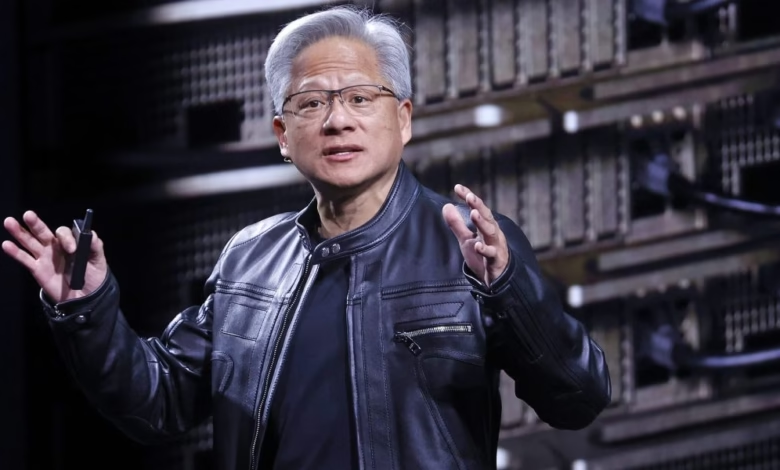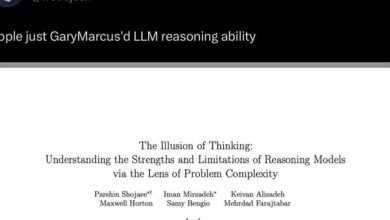Nvidia’s Jensen Huang Clashes With Anthropic CEO Dario Amodei

▼ Summary
– The text is a copyright notice and disclaimer from Fortune Media IP Limited.
– It states that using the site constitutes acceptance of their Terms of Use and Privacy Policy.
– The notice includes compliance with California’s privacy regulations (CA Notice at Collection and Privacy Notice).
– It clarifies that FORTUNE is a registered trademark in the U.S. and other countries.
– The disclaimer mentions that FORTUNE may receive compensation for links to products/services, and offers may change without notice.
The tech world recently witnessed a heated exchange between two industry titans as Nvidia CEO Jensen Huang and Anthropic CEO Dario Amodei publicly disagreed on critical AI development issues. Their debate highlights growing tensions in the artificial intelligence sector regarding computing power limitations and ethical constraints.
During a high-profile industry event, Huang emphasized Nvidia’s commitment to pushing hardware boundaries, arguing that more powerful chips remain essential for advancing AI capabilities. The semiconductor leader’s chief executive dismissed concerns about computational limits, stating current constraints merely reflect temporary technological hurdles rather than fundamental barriers.
Amodei countered with strong warnings about unchecked AI development, particularly regarding large language models. The Anthropic founder stressed that ethical considerations and safety protocols should take precedence over raw processing power expansion. His position reflects growing concerns among AI safety researchers about potential risks associated with increasingly powerful systems.
Industry analysts note this clash represents broader philosophical divisions shaping AI’s future. While hardware-focused companies like Nvidia prioritize performance scaling, AI safety advocates emphasize responsible development frameworks. The debate comes as governments worldwide grapple with establishing regulatory frameworks for advanced AI systems.
Market observers highlight how this tension manifests in competing business strategies. Nvidia continues experiencing surging demand for its AI accelerators, while Anthropic and similar firms focus on developing constrained, explainable AI models. Both approaches attract significant investment, suggesting the market hasn’t settled on a dominant paradigm.
The exchange also touched on resource allocation debates, with Huang defending massive energy requirements for cutting-edge AI training. Amodei questioned whether such resource-intensive approaches represent sustainable or responsible development paths, advocating instead for efficiency-focused alternatives.
This public disagreement between prominent tech leaders signals intensifying discussions about AI’s trajectory as the technology rapidly evolves. Their contrasting visions will likely influence everything from corporate research priorities to government policy decisions in coming years.
(Source: Fortune)





